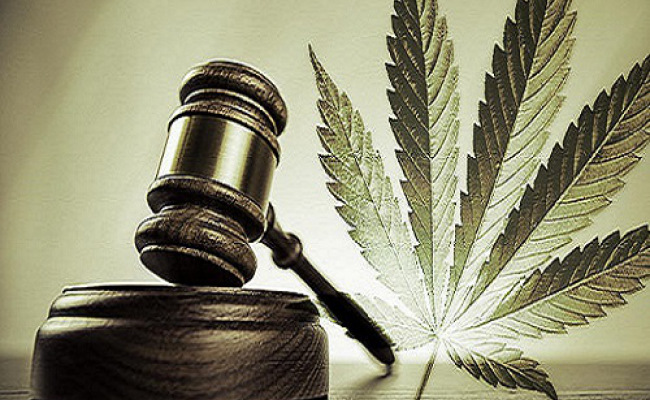- 4 Unexpected Things I’ve Learned From Buying My First Mobile Home Park
- How Ironic: America’s Rent-Controlled Cities Are Its Least Affordable
- U.S. homes are still a bargain on the international market
- Getting The Best Possible Quality Photos On MLSs and Syndicated Sites
- Home buyers in these markets have the upper hand
5 Ways Marijuana Legalization Affects Real Estate

As marijuana becomes legal in more parts of the country, those in the real-estate industry are finding the new laws have implications for properties of every variety, from residential to industrial to retail.
Some of the issues pertain to the growing and processing of the plants; others pertain to the use of it in a rental property or one governed by a homeowner’s association. There are also some things that home buyers need to be aware of, to ensure they know what they’re purchasing.
At the same time, some real-estate professionals are using this as a business opportunity. For example, the 420MLS is a website where people can find and post marijuana business opportunities, commercial space for future “cannabusinesses,” and marijuana-friendly living spaces. Another listing site for Colorado is PotProp.com.
Twenty-three states and the District of Columbia have passed laws that permit the use of prescribed medical marijuana and three states permit recreational use, according to the National Conference of State Legislatures. But federal law prohibits use, possession or sale of all marijuana. The contradiction can make it a challenge for people to run a legal pot business.
The following are five ways real estate is affected by the legalization of marijuana.
Increased industrial property explosions
One of the more popular marijuana products is hash oil, a more concentrated form of THC that you can ingest by putting it under your tongue or sprinkling it on food. Problem is, the process to make this oil involves butane (also required to make meth), and that is a big reason why explosions can happen during production, said Megan Booth, senior policy representative for the National Association of Realtors. In states including Colorado, Washington and California, property explosions have gone up dramatically, she said.
For that reason, if you’re an owner of an industrial property, you’d likely be extra careful before leasing to someone who intends to manufacture hash oil on the premises, Booth said.
Danger of civil asset forfeiture
Whether you’re the owner of a shopping center where a dispensary wants to open, you own an industrial property where marijuana could be grown or you’re a landlord renting an apartment to someone who uses or grows marijuana, you likely have at least some fear of civil asset forfeiture. That’s where the federal government can seize your property if it was used to conduct illegal activity (that was known or should have been known to the owner), or was purchased with the proceeds of an illegal activity, Booth said.
Since marijuana is illegal under federal law, property owners may forbid the growing or use of marijuana, just to steer clear of the possibility they’d lose their property because of it.
“Essentially, from the perspective of property managers, the challenge we have is trying to come up with the best practices for operating properties in an environment where we don’t have clarity about the enforcement or the interpretation of the laws,” said Fred Prassas, past president of the Institute of Real Estate Management and an assistant professor at the University of Wisconsin-Stout.
Harder for marijuana-related businesses to get mortgages
Banks are federally chartered, and because marijuana is illegal on a federal level, many lenders have no interest in approving a mortgage for someone interested in starting up some sort of marijuana-related business.
“It’s hard for these businesses to get loans,” Booth said. That’s why financing for these businesses is often done through private investors, she added.
For landlords who have a non-smoking policy on their property, it’s likely not difficult to keep people from smoking pot (enforcing the rules is another story). But if people are vaporizing their marijuana, it often comes in sweet flavors like strawberry—and can soak through the drywall, and be hard to remove, Booth said.
Growing marijuana requires lots of water, which can contribute to mold issues—becoming a worry for landlords, homeowners associations and individual home buyers deciding whether to make a purchase.
Home buyers should search for mold problems in a home suspected to be a grow house; sometimes, odd wiring systems used for lighting the plants and strange ventilation systems could be tip-offs, Booth said. While growing marijuana is permitted in some places, there are often limits and restrictions.
Grow houses, dispensaries have stigmas
Even when it’s legal by state law, there’s often a stigma associated with houses where pot was grown.
“I showed a house that was in a beautiful location on the Puget Sound…that had been used for a grow operation,” said Kevin Lisota, a real-estate broker in Seattle. “The plant just permeated everything in the house and it sat on the market for a very long time, despite its sweet location,” he said.
Read more at realtor.com




 100% Secure
100% Secure
You must be logged in to post a comment Login